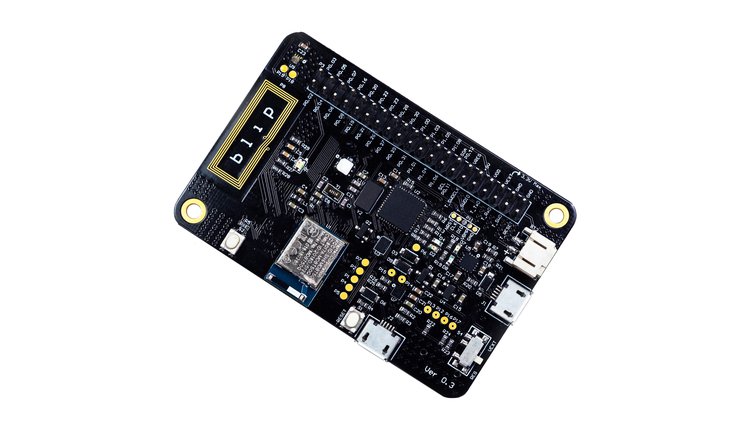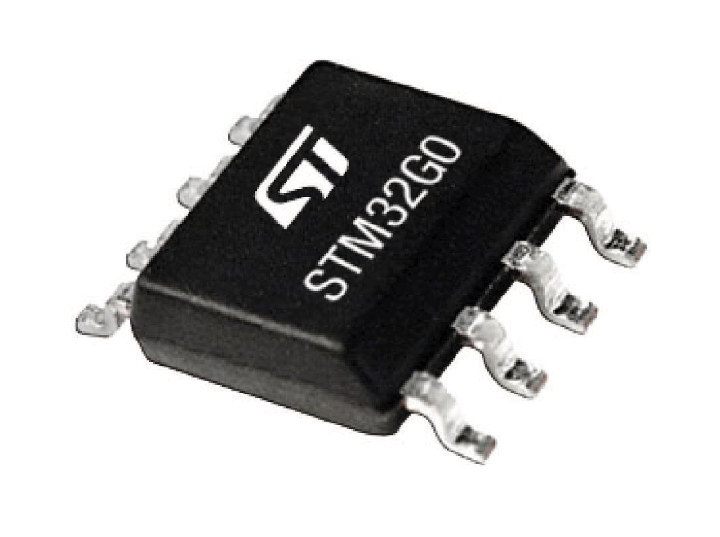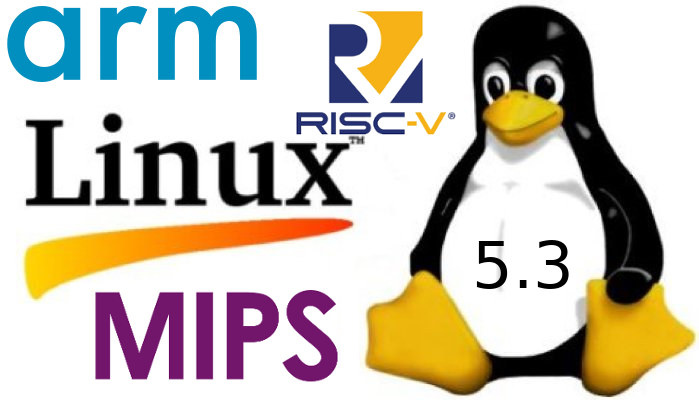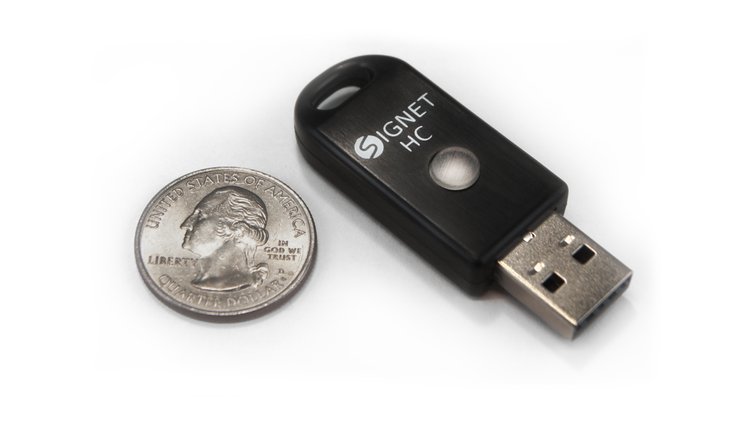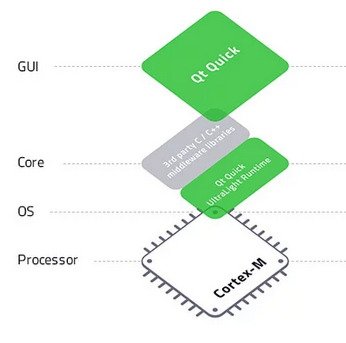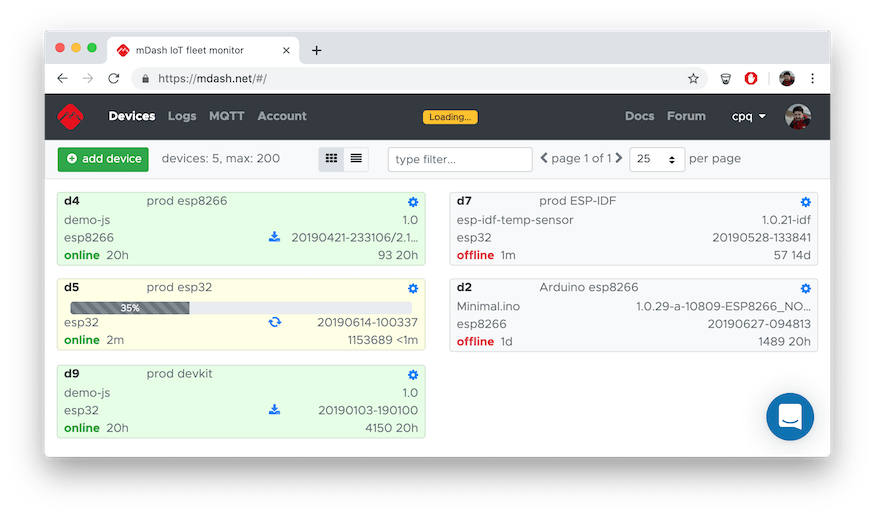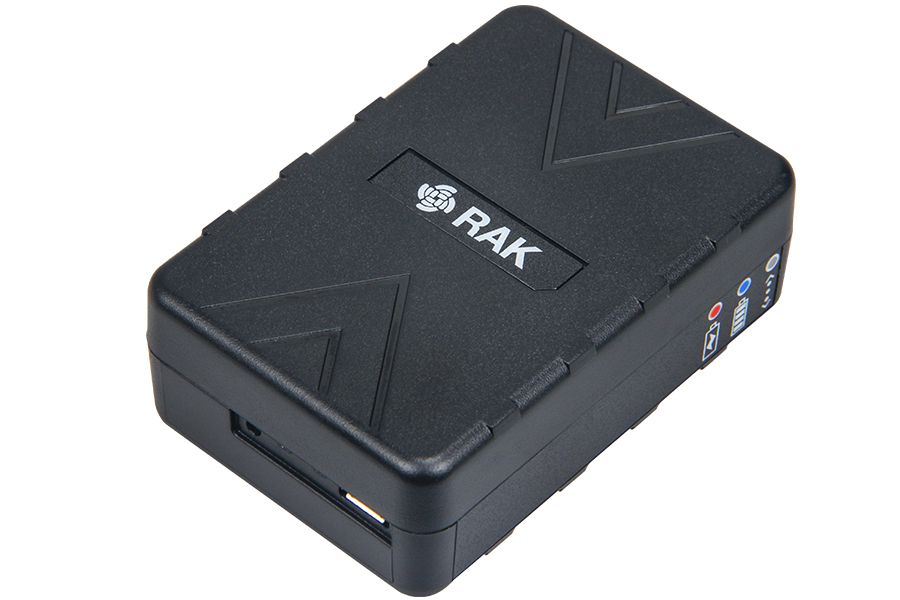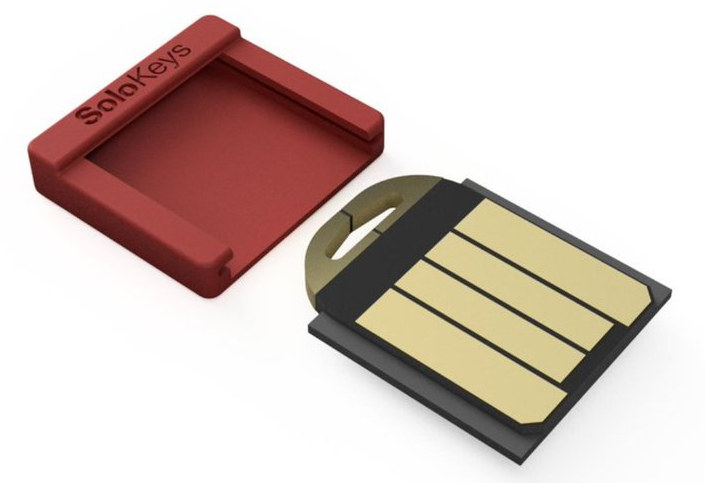The Latest Electronut Labs Nordic nRF52840 Based Dev Board Electronut Labs has started its Crowd Supply campaign for Blip, a Nordic nRF52840 based development board. With many onboard sensors and systems, the boards are aimed at prototyping and projects in a wide variety of BLE and 802.15.4, wireless application scenarios. It has a programmer and debugger built-in. Past Articles Electronut Labs has a series of Nordic Semiconductor SoC projects previously reported on including Papyr, a Bluetooth E-Paper Display and Bluey, a BLE Development board using the Nordic nRF52832, and CNXSoft also published an article comparing several of the Nordic SoC available in development boards for Bluetooth 5 (BLE5). The Features the Stand Out Blip has a Black magic Probe compatible programmer and debugger built-in, along with a temperature/humidity sensor, ambient light intensity sensor, and a three-axis accelerometer. The board is designed to prototype very low power devices and an ability […]
STMicro Launches the first 8-pin STM32 Microcontrollers
At the end of last year, STMicro introduced what they claim is the first 90nm mainstream microcontroller with STM32G0 Arm Cortex-M0+ MCU clocked at 64 MHz. At the time, the family included parts with 24, 32, 48 and 64 pins packages, but there were also plans for 8-pin and 100-pin STM32G0 microcontrollers. The company has now just announced availability for the first 8-pin STM32 microcontrollers thanks to four new STM32G0 SKUs with up to 8KB RAM and 32KB flash in an SO8N package. The 90nm process node and simpler design make the new microcontrollers most suitable for cost & energy-conscious applications governed by battery-capacity limits, eco-design legislation, or market expectations such as appliance energy ratings. 8-pin STM32 Microcontrollers Available Now STM32G030J6 is part of STM32G0 Value Line with 32KB flash and 8KB memory, as well as 6 I/O pins supporting GPIO, SPI, I2C, and UART outputs. STM32G031J6, STM32G031J4, and STM32G041J6 […]
Linux 5.3 Release – Main Changes, Arm, MIPS & RISC-V Architectures
Linus Torvalds has just announced the release of Linux 5.3: So we’ve had a fairly quiet last week, but I think it was good that we ended up having that extra week and the final rc8. Even if the reason for that extra week was my travel schedule rather than any pending issues, we ended up having a few good fixes come in, including some for some bad btrfs behavior. Yeah, there’s some unnecessary noise in there too (like the speling fixes), but we also had several last-minute reverts for things that caused issues. One _particularly_ last-minute revert is the top-most commit (ignoring the version change itself) done just before the release, and while it’s very annoying, it’s perhaps also instructive. What’s instructive about it is that I reverted a commit that wasn’t actually buggy. In fact, it was doing exactly what it set out to do, and did it […]
Signet High-Capacity Thumbdrive Supports 2FA, Password & Secure Data Storage (Crowdfunding)
Signet HC Crowdfunding Started The latest version of the Signet thumbdrive is the Signet HC. The HC has a number of enhanced features and a lower price point, making it an attractive alternative to other high-security flash drives. The drive is high capacity storage, with secure storage technology, 2 Factor Authentication (2FA) token and encryption. It also has a password manager and enhanced database features. The company has started its crowdfunding campaign and there are several device quantity options and peripherals. Features of the Signet HC The Nth Dimension has announced the Signet HC recently, bringing to the forefront of its latest device, the all-in-one aspects of the drive’s capabilities. The Signet HC is certainly positioned to be one of the top featured, encrypted password protected, and 2FA storage devices of its size. The data on the drive is encrypted, and password protected and can be accessed through cross-platform […]
Qt for MCUs – Qt Announces support for Microcontrollers
[Update August 24, 2019: Added information about expected release date and license] About Qt for MCUs Qt- The well known opensource toolkit for creating graphical interface announced their new release: Qt for MCUs, targeting MCU’s. The new graphical toolkit will be capable of running on devices without operating system. This may be a game changer in the entire MCU world, since Qt for MCUs allows developers to create fluid user interfaces on cost-effective micro controllers. This means we will be able to see smartphone like GUI’s which are running on low-end MCU’s with limited resources. With reference to their press release, assuring that Qt-GUI will consume less power to save the battery life. Qt for MCUs Software Stack While developing any applications for MCU, developers still can use their powerful declarative UI language QML and rich set of ready-made Qt Quick controls. And the C++ APIs, helps the user interface […]
mDash Cloud platform for IoT Devices Targets ESP8266/ESP32, STM32, and TI CC3220 Wireless MCUs
Cesanta (a company based in Dublin, Ireland) recently launched mDash – an IoT cloud platform for administration of various IoT modules. This platform supports Espressif’s modules ESP32 & ESP8266, STM32 (L4,M4) and TI CC3220, and offers a bunch of features which are known to be challenging tasks in the IoT world. This includes OTA (Over-The-Air) firmware updates, remote configuration and administration, alerts and notifications, remote device control and file management. This can be achieved through 3 programming platforms – Arduino IDE, ESP-IDF and through Mongoose OS. For evaluation and testing purpose mDash offers a simulator that run as a docker container. Refer our previous post, to understand how to get started with Cesanta’s Moongoose OS for ESP8266. Basic WorkFlow mDash Library The company offers reference firmware/library for the defined hardware platforms. This been implements by using secure MQTT for communication, re-connection and initial provisioning with mDash cloud. You can find […]
RAKWireless Introduces RAK7200 LoRa Tracker | Features & Specifications
RAK7200 is a LoRa Tracker node built around the AcSIP S76G chip. It integrates the ultra-low-power STM32L073 micro-controller, the SX1276 LoRa long range modem, and the CXD5603GF GPS receiver. The RAK7200, being a fully functioning LoRaWAN device, is particularly suited for IoT applications. Such as asset tracking, smart vehicle management, location-based service, etc. According to the device manufacturers, RAKWireless, a leading Chinese IoT solutions company, based in Shenzhen, RAK7200 requires minimal setup. Just pop in the included battery, close the housing and you can start sensing your GPS data over LoRaWAN. Furthermore, there are sensors built-into the board: a 9-axis accelerometer and pressure sensor. The new GPS Tracker node is an upgrade over the company’s earlier offering in the GPS tracker space, the RAK7205. Now, the earlier version, the RAK7205, was mostly aimed at developers, with its larger more robust casing and solar panel. But the RA7200 is more of […]
Somu Tiny Open Source FIDO2 Security Key Enables Passwordless Login & Two-factor Authentication (Crowdfunding)
Tomu is a tiny, open source USB connector-sized board powered by a Silicon Labs Happy Gecko Cortex-M0+ MCU that adds two keys to your computer and can work as a Universal 2nd Factor (U2F) token to support two-factor authentication (2FA). But the board is not secure enough for FIDO2 support, and Tomu’s developer worked on a secure USB key called Solokey, and shrank it to Tomu form factor. Meet Somu open-source and secure key with FIDO2 support for compatibility with your Google, Twitter, and GitHub accounts for two-factor authentication, or your Microsoft account passwordless login. Somu hardware specifications: Secure MCU – STMicro STM32L432KC Arm Cortex-M4 microcontroller with TRNG, security isolation for keys, two levels of locked flash Crypto Algorithms – ECC P256 (as per FIDO2 standard) Supported Protocols – FIDO2, U2F Host Interface – USB type-A port Misc – Two touch buttons ( in FIDO2 firmware the two buttons behave […]


